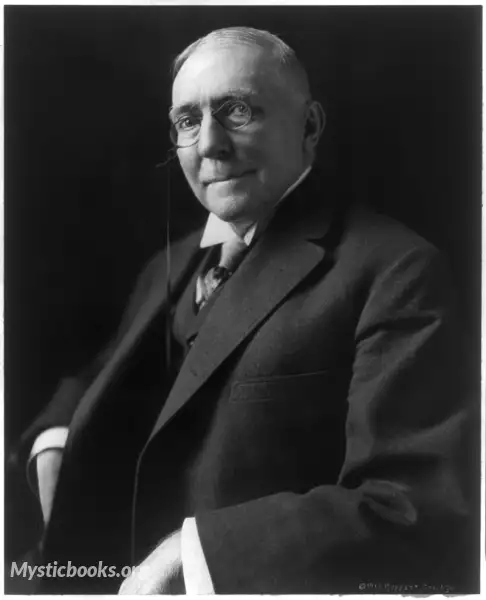
Timeline
Title
Country/Nationality
James Whitcomb Riley
James Whitcomb Riley was an American writer, poet, and best-selling author. During his lifetime he was known as the "Hoosier Poet" and "Children's Poet" for his dialect works and his children's poetry. His poems tend to be humorous or sentimental. Of the approximately 1,000 poems Riley wrote, the majority are in dialect. His famous works include "Little Orphant Annie" and "The Raggedy Man".
Riley began his career writing verses as a sign maker and submitting poetry to newspapers. Thanks in part to poet Henry Wadsworth Longfellow's endorsement, he eventually earned successive jobs at Indiana newspaper publishers during the late 1870s. He gradually rose to prominence during the 1880s through his poetry reading tours. He traveled a touring circuit first in the Midwest, and then nationally, appearing either alone or with other famous talents. During this period Riley's long-term addiction to alcohol began to affect his performing abilities, and he suffered financially as a result. However, once he extricated himself from a series of poorly negotiated contracts that sought to limit his earnings, he began to accumulate wealth and eventually became a financial success.
By the 1890s, Riley had become known as a bestselling author. His children's poems were compiled into a book illustrated by Howard Chandler Christy. Titled Rhymes of Childhood, it was his most popular and sold millions of copies. As a poet, Riley achieved an uncommon level of fame during his lifetime. He was honored with annual Riley Day celebrations around the United States and was regularly called on to perform readings at national civic events. He continued to write and hold occasional poetry readings until a stroke paralyzed his right arm in 1910.
Riley's chief legacy was his influence in fostering the creation of a Midwestern cultural identity and his contributions to the Golden Age of Indiana Literature. With other writers of his era, he helped create a caricature of Midwesterners and formed a literary community that produced works rivaling the established eastern literati. There are many memorials dedicated to Riley, including the James Whitcomb Riley Hospital for Children.
Riley had become very wealthy by the time he stopped touring in 1895 and was earning $1,000 a week. Although he retired, he continued to make minor appearances. In 1896, Riley performed four shows in Denver. Most of the performances of his later life were at civic celebrations. He was a regular speaker at Decoration Day events and delivered poetry before the unveiling of monuments in Washington, D.C. Newspapers began referring to him as the "National Poet", "the poet laureate of America", and "the people's poet laureate". Riley wrote many of his patriotic poems for such events, including "The Soldier", "The Name of Old Glory", and his most famous such poem, "America!". The 1902 poem "America, Messiah of Nations" was written and read by Riley for the dedication of the Indianapolis Soldiers' and Sailors' Monument.
The only new poetry Riley published after the end of the century were elegies for famous friends. The poetic qualities of the poems were often poor, but they contained many popular sentiments concerning the deceased. Among those he eulogized were Benjamin Harrison, Lew Wallace, and Henry Lawton. Because of the poor quality of the poems, his friends and publishers asked that he stop writing them, but he refused.
In 1897, Riley's publishers suggested that he create a multi-volume series of books containing his complete life works. With the help of his nephew, Riley began working to compile the books. There were eventually sixteen volumes, which were finally completed in 1914. Such works were uncommon during the lives of writers, attesting to the uncommon popularity Riley had achieved.
His works had become staples for Ivy League literature courses and universities began offering him honorary degrees. The first was Yale in 1902, followed by a Doctorate of Letters from the University of Pennsylvania in 1904. Wabash College and Indiana University granted him similar awards. In 1908 he was elected a member of the National Institute of Arts and Letters; in 1912 they conferred upon him a special medal for poetry.
Riley was influential in helping other poets start their careers, having particularly strong influences on Hamlin Garland, William Allen White, and Edgar Lee Masters. He discovered aspiring African-American poet Paul Laurence Dunbar in 1892. Riley thought Dunbar's work was "worthy of applause" and wrote him letters of recommendation to help him get his work published.
Books by James Whitcomb Riley
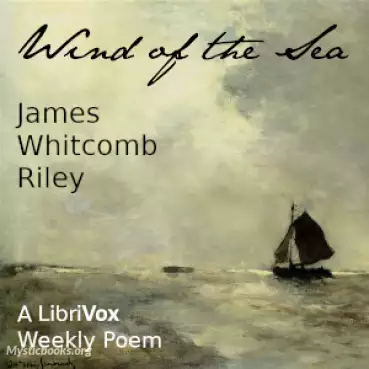
Wind Of The Sea
James Whitcomb Riley was an American writer, poet, and best-selling author. During his lifetime he was known as the "Hoosier Poet" and "Children's Poet" for his dialect works and his children's poetry. His poems tend to be humorous or sentimental.
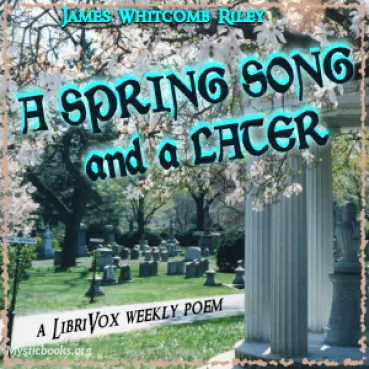
A Spring Song And A Later
The poem is centered around the beauty and wonder of nature, capturing the sights, sounds, and emotions of the changing seasons. From the joyous celebration of spring in "A Spring Song" to the contemplative reflection of autumn in "A Later Autumn," e...
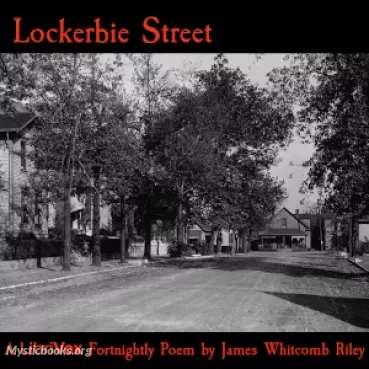
Lockerbie Street
The poem takes place on Lockerbie Street, a quiet and peaceful neighborhood where the speaker lived as a child. Through the poem, the speaker reminisces about his childhood and the happy memories he shared with his family and friends on Lockerbie Str...
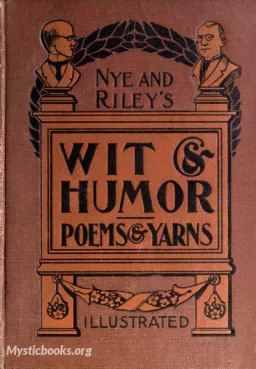
Nye and Riley's Wit and Humor
Have you ever wondered what it would be like to spend an afternoon with two of the funniest men in America? In Nye and Riley's Wit and Humor, you can! This collection of poems, stories, and essays by Edgar Wilson Nye and James Whitcomb Riley is sure...
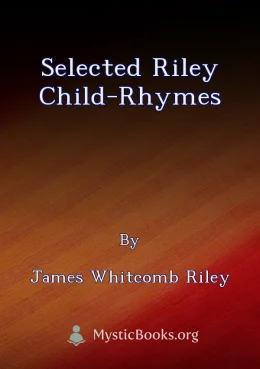
Selected Riley Child-Rhymes
Riley was an American writer known as the "Hoosier poet", and made a start writing newspaper verse in Hoosier dialect for the Indianapolis Journal in 1875. His favorite authors were Burns and Dickens. This collection of poems is a romanticized and mo...
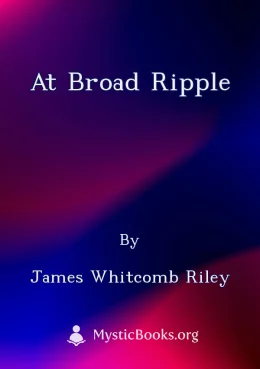
At Broad Ripple
At Broad Ripple is a collection of poems by American poet James Whitcomb Riley. The poems are about the people and places of Broad Ripple, a small town in Indiana. Riley's poems are full of nostalgia and humor, and they capture the simple life of the...
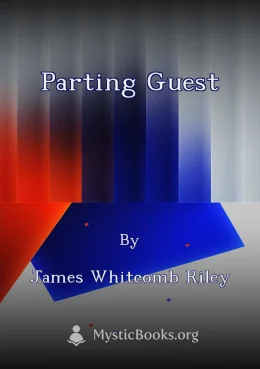
Parting Guest
A Parting Guest is a poem by James Whitcomb Riley, known for its heartwarming depiction of rural life in Indiana. It tells the story of a visitor's departure, leaving behind a sense of both sadness and contentment. Riley's signature use of dialect an...
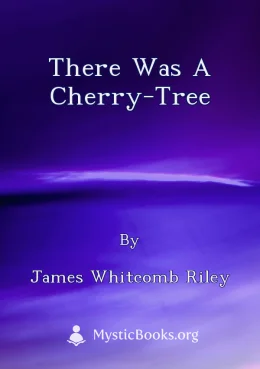
There Was a Cherry-Tree
There Was a Cherry Tree is a poem by James Whitcomb Riley, published in 1883. It is a nostalgic look back at childhood, specifically a memory of a cherry tree in the narrator’s backyard. Riley’s evocative language and vivid imagery bring the cherry t...
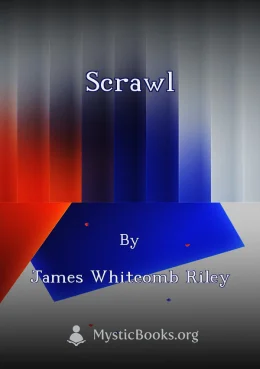
Scrawl
''Scrawl'' is a collection of poems by James Whitcomb Riley, known as the "Hoosier Poet." The poems, written in a distinctive dialect reflecting the speech patterns of rural Indiana, capture the essence of everyday life, often with a touch of humor a...
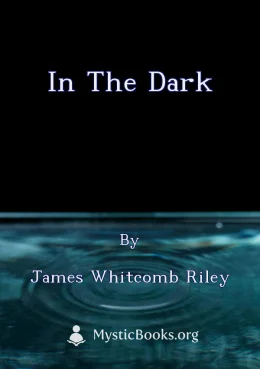
In The Dark
In The Dark by James Whitcomb Riley is a collection of poetry, characteristic of Riley's style, showcasing his ability to capture the everyday experiences and emotions of childhood. The poems often use a dialect specific to Indiana, known as Hoosier...
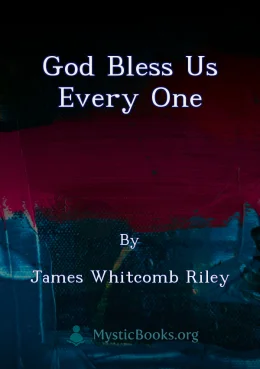
God Bless Us Every One
This book is a collection of poems by James Whitcomb Riley, known as the 'Hoosier Poet' for his dialect poems and the 'Children's Poet' for his works aimed at young audiences. The poems in this collection primarily explore themes of Christmas, its or...
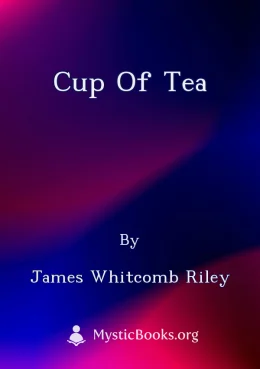
Cup of Tea
This collection of poems by James Whitcomb Riley, known as the "Hoosier Poet," showcases his signature style. The verses are filled with a blend of humor, sentimentality, and a strong connection to the Midwestern American experience. Riley's works of...
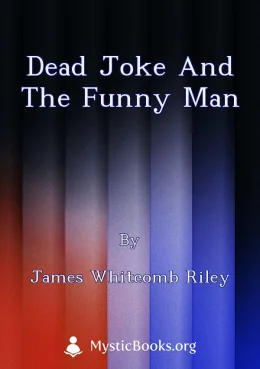
Dead Joke and The Funny Man
This collection of poetry, 'Dead Joke and The Funny Man', by James Whitcomb Riley, showcases his signature style of humor and heartwarming storytelling. Known for his ability to capture the essence of everyday life, Riley uses a unique blend of dial...
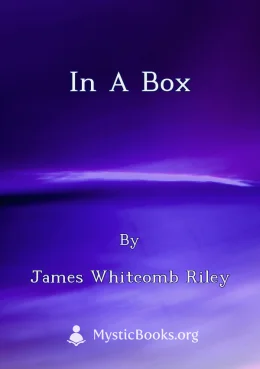
In A Box
This book is a collection of poems by James Whitcomb Riley, known for his use of dialect and his portrayal of everyday life in the American Midwest. The poems often feature themes of childhood, nature, and simple pleasures, and are characterized by t...
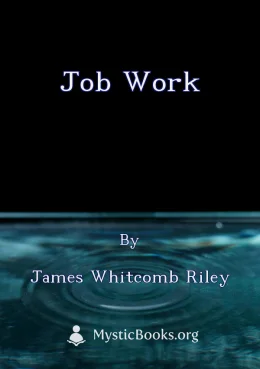
Job Work
This collection of poetry by James Whitcomb Riley, known as the "Hoosier Poet," showcases his signature style. Riley's poems often feature dialect, capturing the speech patterns and humor of rural Indiana life. His works frequently explore themes o...
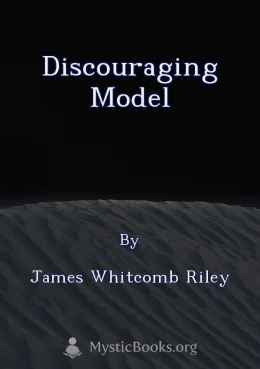
Discouraging Model
A Discouraging Model is a collection of poems by James Whitcomb Riley, known for his use of Hoosier dialect and his portrayal of rural life in Indiana. The poems often focus on everyday events, family life, and the joys and sorrows of the common peop...
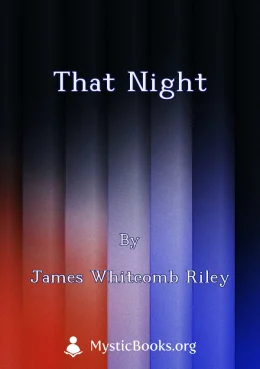
That Night
'That Night' is a poem by James Whitcomb Riley that captures the nostalgic memories of a childhood summer night in the Midwest. Written in the Hoosier dialect, the poem evokes the sights, sounds, and smells of a warm evening in rural Indiana. Riley's...
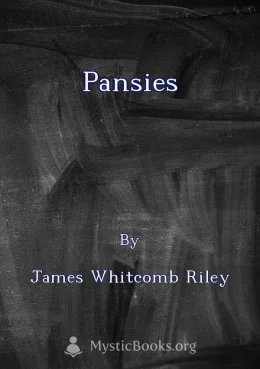
Pansies
James Whitcomb Riley's "Pansies" is a collection of poems that capture the essence of childhood, nature, and the human condition. With a focus on simplicity and sincerity, Riley's verses explore themes of love, loss, joy, and sorrow through the lens...
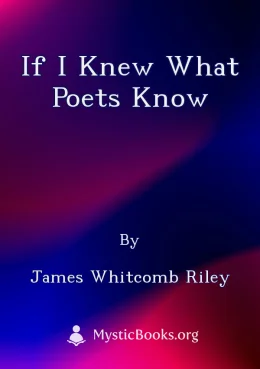
If I knew What Poets Know
If I Knew What Poets Know is a collection of poems by James Whitcomb Riley, known for his portrayal of Midwestern life and his use of dialect. His poems often depict scenes from rural life, featuring characters and situations relatable to people of...
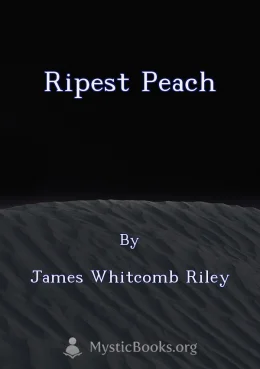
Ripest Peach
The Ripest Peach is a classic poem by James Whitcomb Riley, known for his heartwarming and often humorous portrayals of rural life. It is a delightful ode to the simple joys of summer, featuring a child’s perspective on the ripening of a peach, the a...
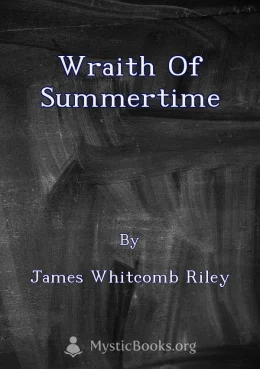
Wraith of Summertime
This collection of poetry by James Whitcomb Riley evokes the nostalgic memories of summer past. Riley's vivid imagery and use of方言 transport the reader to a simpler time, where the days were long and the nights were warm. The poems are filled with...
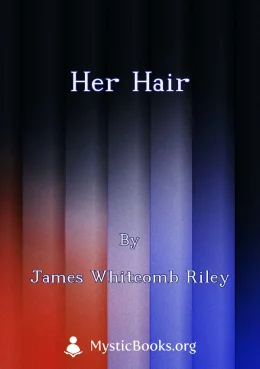
Her Hair
This classic poem by James Whitcomb Riley explores the powerful and evocative memories associated with a woman's hair. The speaker reflects on the physical and emotional connection he feels to his beloved's hair, describing its beauty and the way it...
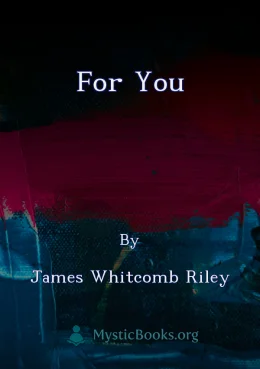
For You
This collection of poems by James Whitcomb Riley, known as the 'Hoosier Poet,' reflects the charm and simplicity of Midwestern life. Riley's verses capture the essence of rural Indiana, showcasing its people, landscapes, and traditions. His work is c...
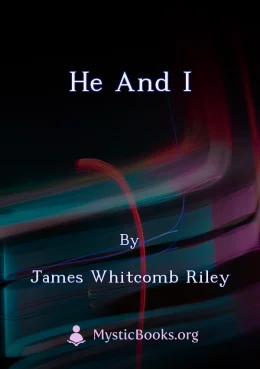
He and I
'He and I' is a collection of poems by James Whitcomb Riley, known as the 'Hoosier Poet', capturing the essence of rural Indiana life, particularly through the eyes of a child. Riley's poems often employ simple language, dialect, and vivid imagery to...